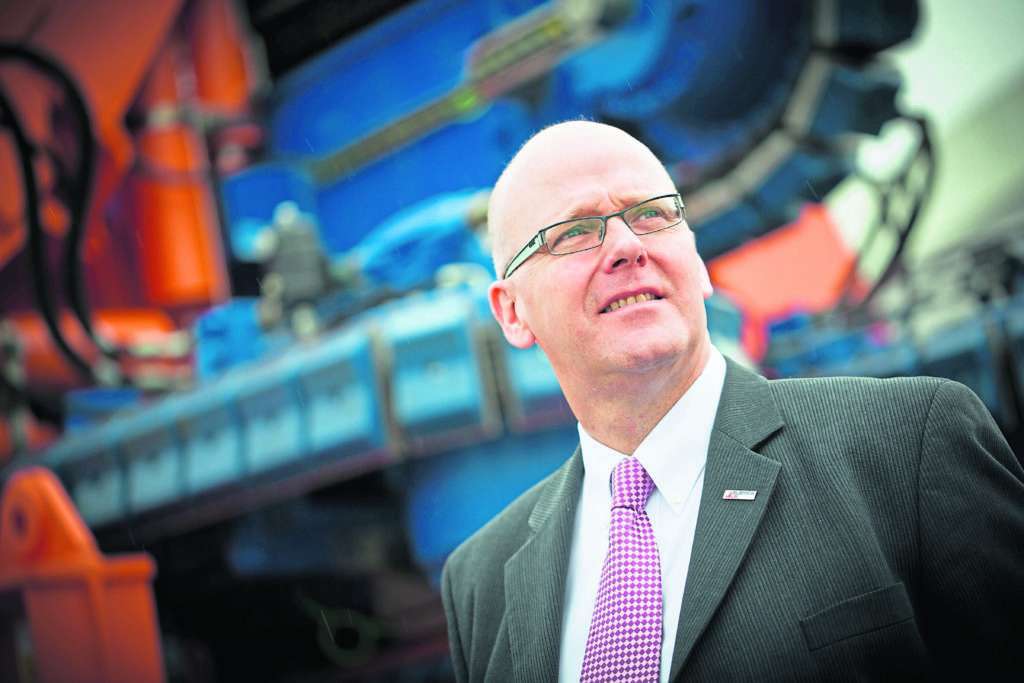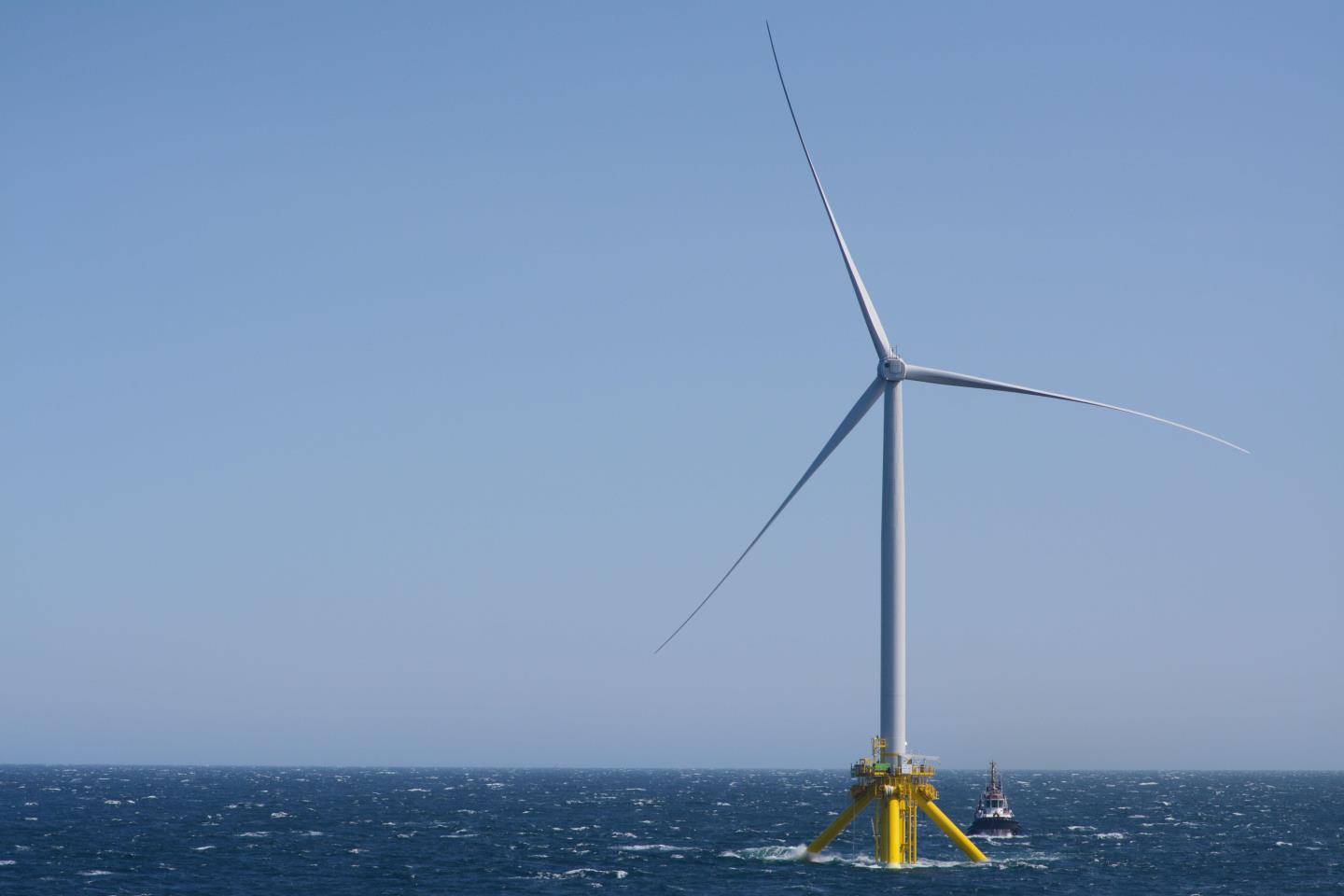
The skills supply and demand dilemma is once more at the forefront of a set of very big challenges facing the underwater industry.
In our White Paper, published at the official launch of the Global Underwater Hub in February this year, we revealed that the UK’s underwater industry, valued at around £8bn, had the potential to grow to £45bn by 2035, creating around £20bn in exports and an estimated 180,000 new jobs.
This was at a time when the world was just coming out of the global pandemic and the number of new jobs may have seemed highly ambitious. We’re now in a whole different world where a confluence of factors is leading to a tightening in the labour market and therefore a renewed focus on workforce sustainability.
Lack of labour amid giant industrial task
There are reports of skills shortages across the spectrum, from retail and hospitality through to construction and energy. It appears that no sector is untouched by the challenges of retaining and attracting people post-Covid. Indeed, a potential u-turn on UK Government immigration policy has been reported, with the new PM keen to boost immigration to fill urgent job vacancies – particularly in IT and agriculture.
During this time, we’ve also seen a shift in sentiment towards oil and gas exploration and production as a direct result of the geopolitical situation in Ukraine. This has caused chaos in the global energy market with governments around the world adjusting their focus towards energy security. Consequently, oil and gas has moved up the agenda, but this must not come at the expense of the energy transition. Indeed, this journey away from reliance on fossil-fuels towards renewables must continue to accelerate and companies must therefore take into account both nearer-term oil and gas opportunities as well as long-term renewable energy projects when resource planning.
The scale of what is planned in UK waters, through Scotwind and INTOG signals one of the biggest industrial opportunities for decades. However, with these multi-billion pound opportunities coming down the line, both in emerging sectors where subsea skills and technology are eminently transferable, such as floating offshore wind, wave and tidal energy, CCUS and hydrogen, and in traditional oil and gas, it’s clear that the UK’s underwater industry, which has also been exploring the potential in aquaculture, oceanology and defence, is facing an unprecedented scale and choice of opportunities.
The GUH is scrutinising the underwater aspect of these major commercial opportunities to provide granularity around the scale for companies but also to work with government and all stakeholders to develop a supply chain strategy that will build out a robust, indigenous industry with the capability and capacity needed to maximise them.
Building a sustainable workforce must be at the heart of these strategies. In the same way that companies need to fully understand the opportunities, in order to make informed decisions on which to go after, they need to consider how they will resource these.
Four Pillars
That’s why one of GUH’s four pillars is centred on capability and skills infrastructure. We are taking an industry-wide approach to support the development of the skills and capabilities that will drive competitive advantage through a workforce sustainability strategy, specifically tailored to the underwater industry.
The development of this strategy starts with a recognition of the complex and somewhat cluttered, but often disparate, skills landscape alongside a thorough understanding of the specific skills gaps.
GUH carried out interviews with member companies to find out where the pinch points are, where they are likely to be in the future and what skills will be required to support growth. Gaps have already been identified in engineering, digital skills, systems knowledge, hydrogen generation, industry and technology knowledge, and also in relation to equipping future senior managers with relevant skills.
In a nutshell, our strategy to enable the blue economy in the UK to thrive and to help businesses and people fulfil their potential will centre around influencing government policy and the vocational skills landscape, working with education providers and standard setting bodies to ensure an effective skills infrastructure is in place to support the attraction, conversion and transition of the right people.
A workforce sustainability special interest group has now been established by GUH to inform and support the strategy. This group aims to improve awareness of the challenges, opportunities and needs within each underwater market sector, to remove the barriers in both education and employment, to promote projects led by others in the underwater sector and avoid duplication, to connect relevant parties and broker productive conversations and to be a torch-bearer for under-represented groups in the labour market, passionately supporting equality, diversity and inclusion.
Right skills at the right time
In essence, the workforce sustainability group is a collaborative forum for the underwater industry to explore the employment and workforce skills challenges it faces and to drive collective action.
This, in turn, will lead to targeted programmes to attract, re-attract, convert and transition the right skills into the market sectors, at the right time.
First-hand, industry testimony will also be used to inform and engage with government in order to influence thinking on workforce skills, education and training across the country, ensuring that identified industry need is met.
An over-arching theme will be the compelling story about careers in the underwater industry. It’s important that individuals, at all stages in their career, from making choices at school to considering a new path later in life, understand the opportunities in the underwater space. Careers transcend organisations and sectors across the blue economy, offering an exciting journey and longevity where they can make a difference sustainably and environmentally.
The unprecedented scale of growth in the underwater industry, coupled with a tight labour market, mean that the sustainability of our industry’s workforce has never been so important.
It’s not a new challenge, particularly in the energy sector where the boom and bust cycles make it even more challenging to attract and retain people, but it’s one that needs a fresh, industry-wide approach with a clear focus on short, medium and long-term initiatives that will make a tangible difference to developing the UK’s underwater capability and capacity.
The Global Underwater Hub is the leading trade and development body for the UK’s underwater industry. The strategic, intelligence-led organisation is set to transform the UK’s £8bn underwater industry into one of the largest and fastest-growing industries in the country, accelerating the drive to net-zero and creating high value sustainable jobs and exports.
Building on Subsea UK’s heritage and retaining its experience, knowledge, network and membership, the Global Underwater Hub harnesses the UK’s combined underwater expertise in engineering, environmental science, technology, services and skills, to enable companies to successfully compete in the underwater sectors of offshore energy, defence, aquaculture, telecoms, and subsea mining.
Recommended for you

 © Supplied by Shell
© Supplied by Shell